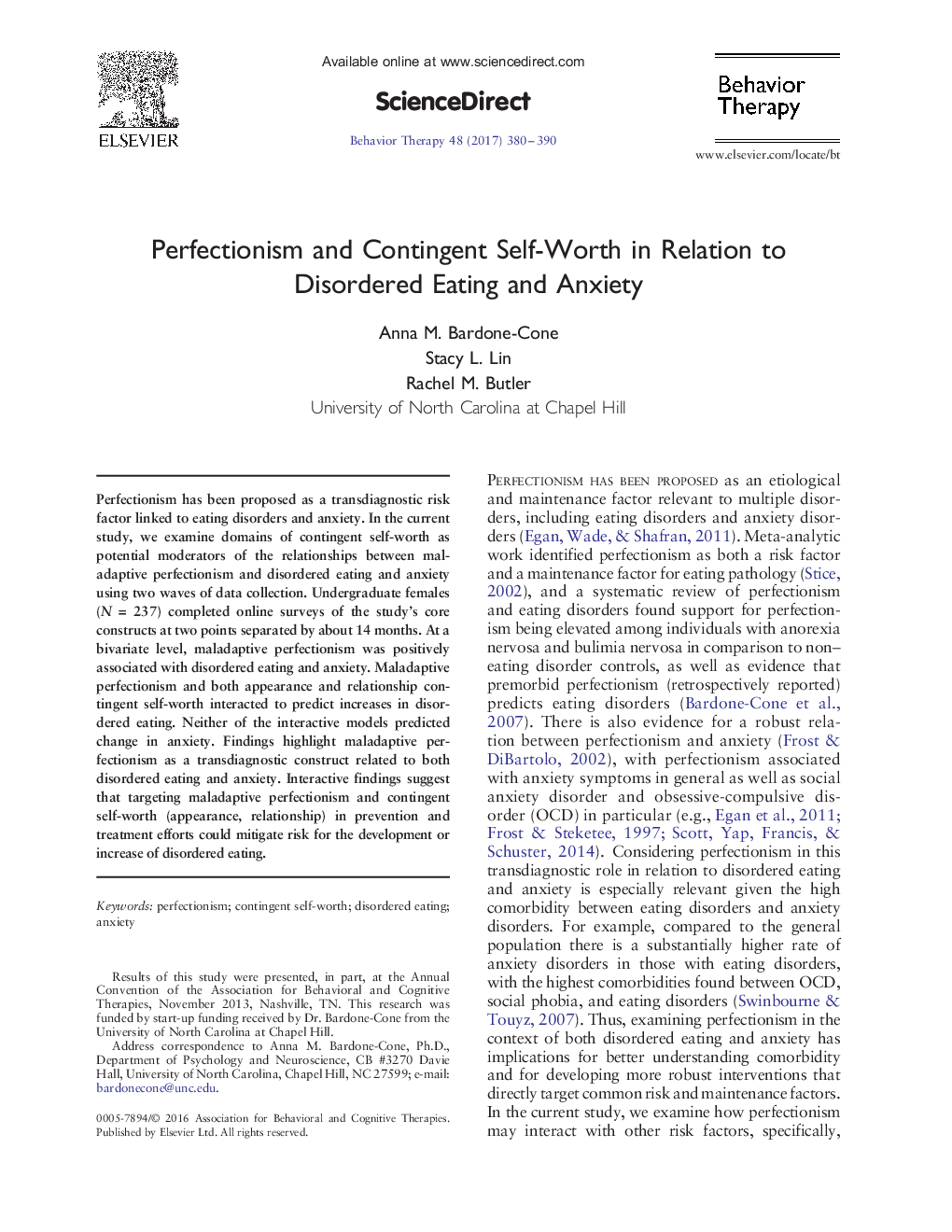| Article ID | Journal | Published Year | Pages | File Type |
|---|---|---|---|---|
| 5037989 | Behavior Therapy | 2017 | 11 Pages |
â¢Perfectionism and contingent self-worth moderator models were examined.â¢Disordered eating and anxiety were DVs in change analyses across 14 months.â¢Maladaptive perfectionism was a risk factor for both disordered eating and anxiety.â¢Maladaptive perfectionism and 2 forms of contingent self-worth interacted to predict increased disordered eating.
Perfectionism has been proposed as a transdiagnostic risk factor linked to eating disorders and anxiety. In the current study, we examine domains of contingent self-worth as potential moderators of the relationships between maladaptive perfectionism and disordered eating and anxiety using two waves of data collection. Undergraduate females (N = 237) completed online surveys of the study's core constructs at two points separated by about 14 months. At a bivariate level, maladaptive perfectionism was positively associated with disordered eating and anxiety. Maladaptive perfectionism and both appearance and relationship contingent self-worth interacted to predict increases in disordered eating. Neither of the interactive models predicted change in anxiety. Findings highlight maladaptive perfectionism as a transdiagnostic construct related to both disordered eating and anxiety. Interactive findings suggest that targeting maladaptive perfectionism and contingent self-worth (appearance, relationship) in prevention and treatment efforts could mitigate risk for the development or increase of disordered eating.
